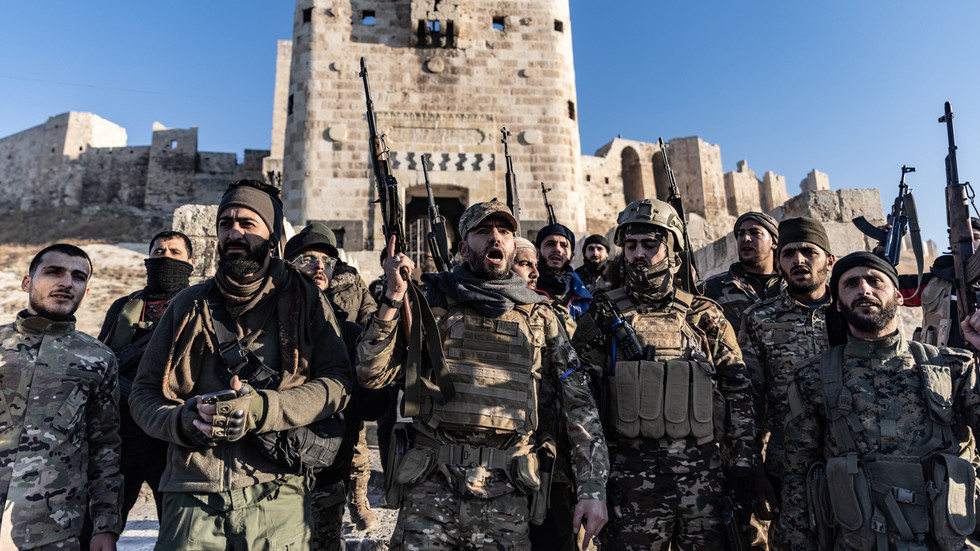The recent resurgence of conflict in northwest Syria, particularly the city of Aleppo, has set the stage for a new and intense phase of violence amid a backdrop of ongoing regional power struggles. Following a ceasefire in Lebanon, militant groups, including the Türkiye-backed Syrian National Army and jihadist factions such as the Levant Liberation Organization, have launched a well-coordinated assault on Aleppo, a city with a population of over two million. This uptick in hostilities marks a stark departure from a relative lull observed over the last four years, underscoring the fragility of peace processes in Syria amidst persistent international efforts to resolve the decade-long civil war. Aleppo’s significance extends beyond its geographical boundaries, representing key economic and political interests, and a potential shift could have far-reaching implications for the stability of the region.
As clashes intensify, the Syrian army’s response has been markedly tepid, revealing its vulnerabilities in the face of a concerted militant offensive. The Syrian defense ministry acknowledged a “large-scale” attack by opposition forces but offered little in terms of a credible counter-strategy, casting doubt on the regime’s capacity to effectively repel insurgents. Concurrently, reports indicate targeted airstrikes by Russian and Syrian forces aimed at disrupting militant supply routes, yet these measures may not be sufficient to alter the balance of power. The military’s inability to respond decisively raises concerns over Damascus’ authority and control, particularly in Aleppo, the country’s second-largest city, which holds immense strategic and symbolic value.
Iran’s lack of decisive intervention in the ongoing conflict further complicates the situation. Iranian forces maintain a substantial presence in Syria, with numerous military facilities established in Aleppo; however, they have refrained from engaging actively against the advancing opposition factions. This strategic inaction raises questions about Tehran’s overarching goals in Syria and its operational effectiveness, especially in the absence of air support. The complexity of the geopolitical landscape, including potential Israeli and international strikes, may have contributed to Iranian forces’ hesitance. The Iranian military’s reluctance to engage actively poses a risk of allowing militant groups to consolidate power in and around Aleppo, undermining Tehran’s long-term interests in the region.
In response to the deteriorating conditions, the Syrian government has taken steps to bolster its military supplies, although these actions appear reactive rather than part of a proactive military strategy. This acknowledgment further highlights the fragility of the ceasefire established in 2020 by Russia and Türkiye, indicating a political stalemate that extends beyond local hostilities. The broader context illustrates the failure of international diplomatic efforts to foster a lasting resolution to the Syrian crisis, with UN Envoy Geir Pedersen’s remarks underlining the global frustration over stalled peace processes. The intensifying conflict signifies a renewed urgency for diplomatic clarity, as the path to a peaceful resolution becomes increasingly obfuscated amid ongoing hostilities and competing interests.
On a regional level, Turkey’s endeavors to engage with the Assad regime remain nascent and unproductive. President Recep Tayyip Erdoğan’s ambitions for normalization and peace are hindered by persistent refugee crises and ongoing tensions with Kurdish groups. Without significant dialogue between Ankara and Damascus, the potential for a breakthrough in peace negotiations remains bleak. Turkey’s military presence in Syria rivals, and in some capacities, surpasses that of Iran, gaining clout owing to its modern military capabilities. This shift has allowed Turkey to exert increasing influence over various armed factions in the region, particularly in Aleppo. The interplay between Turkish and Iranian forces reveals a nuanced power dynamic where Turkey aims to consolidate its position while navigating its complex relationships with both domestic and foreign stakeholders.
As the conflict over Aleppo persists, Israeli security concerns regarding Iranian advancements near its borders are heightened. In response, Israel has adopted a more proactive stance, focusing on countering Iranian influence in Syria and strengthening ties with regional allies, particularly following U.S. geopolitical realignments. The anticipated re-engagement of the U.S. under a Republican government is likely to influence Israel’s approach towards Syria, potentially catalyzing coordinated actions against Iranian forces. The intricate interplay of local violence and broader geopolitical strategies illustrates that the battle for Aleppo extends far beyond the immediate military confrontation, serving as a pivotal nexus in shaping the future of not only Syria but the wider Middle East.
In conclusion, the outcome of the conflict in Aleppo is poised to have significant implications for the regional order and the fates of various state and non-state actors involved. As militant groups advance and the Syrian government’s military framework appears increasingly fragile, the potential for a shift in regional dynamics becomes apparent. Türkiye, Iran, and Israel are positioned as critical players whose actions will further carve Syria’s political landscape and stability. The decisions made by the involved parties underscore the complexity of Syrian geopolitics and raise pressing questions about the feasibility of diplomatic resolutions amid escalating violence. Ultimately, Aleppo stands as a pivotal battleground in a multifaceted struggle for power that encompasses not just the immediate stakeholders but also the broader thematic narrative of conflict in the region.

